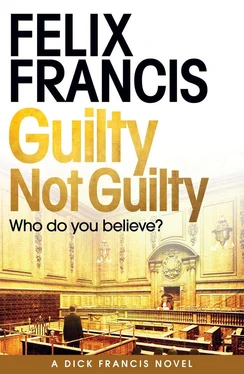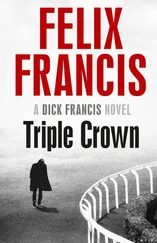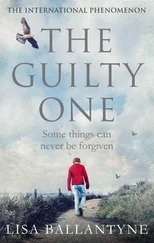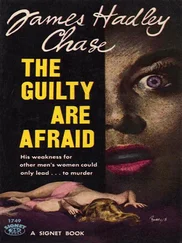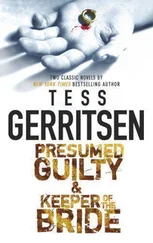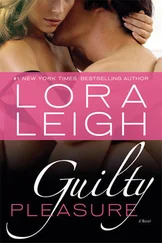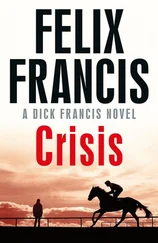‘Yes, well, that’s why I asked you to come here today.’
Suddenly, I feared that he was going to tell me I wasn’t wanted, and to demand back my official pass card, but he could have surely done that by email or post. And my fears were unfounded.
‘I am pleased to tell you,’ he said, ‘that I will be recommending to the full BHA board that your name be reinstated on the official List of Stewards.’
I smiled broadly.
‘That is very good news,’ I said. ‘But George Longcross won’t be pleased. He told me in no uncertain terms that I’d brought racing into disrepute.’
It was a comment that still irritated me.
‘Yes, well, George can be a bit of a dinosaur at times. But you have always impressed me by the solid reasoning of your arguments and the clarity of your decisions. Welcome back to the team.’
He held out his hand again and, this time, I shook it, warmly.
‘Let’s hope the main board agree with you.’
‘They will,’ he said. ‘I have the Authority chairman’s blessing to hold this meeting. You will hear officially very soon.’ He stood up to indicate that our meeting was over. He smiled. ‘I must now get back to my job of stewarding here today. My colleagues have been holding the fort for me outside.’
I also stood up and gathered my walking aids together.
‘Thank you,’ I said, meaning it.
There was almost a spring in my faltering steps as I went back outside to Douglas and I didn’t need to tell him the outcome — he could tell by the huge grin that I couldn’t wipe off my face.
It was going to be a fun afternoon, after all.
‘I’ll order some more bubbly,’ he said.
‘Only if you want me to fall over.’
We settled on a coffee from a concession stand, which we drank while perusing the runners in the next race.
Douglas chose to place another wager, again ten pounds, this time on a horse with a legal-sounding name, but his renewed high hopes ended once again with more confetti in the wind.
It was a good job my brother was a better lawyer than he was a punter.
Week two of the trial was taken up by the prosecution as they slowly tried to build a solid wall of evidence with which to surround the defendant, a wall that we all hoped the defence would be unable to knock down.
After I’d finished giving my own testimony on the first Friday, I sat in the public area of the court for every moment of the trial, and I watched as a steady stream of witnesses made their way in and out again.
First up was Nancy Fadeley. She stood bolt upright in the witness box dressed in a smart floral-printed summer dress, and wearing her signature pearl necklace, this time with matching drop-pearl earrings. The prosecutor began by asking her to tell the jury of her trip to the pub with Amelia on the evening before she died, and to recount the conversation that had taken place between the two of them.
As DCI Priestly had predicted, the defence barrister didn’t like it one bit and, in spite of his complaints having been dismissed once at a previous hearing, he now again protested vociferously to the judge that what Amelia had said to a third party was mere hearsay and should be inadmissible as evidence.
The jury were sent out of the court while the matter was discussed at length between the lawyers. Eventually, the judge ruled that, as Amelia wasn’t able to attend court herself to be questioned due to having been the victim of the murder and hence she was dead, evidence of what she had said to a third party was relevant and admissible.
The jury were brought back in and Nancy continued, explaining how Amelia had told her that she was certain that Joe had stolen money from their mother, and how he would have killed her if he’d known she was aware of it.
The next witness was someone I didn’t recognise, who turned out to be Alan Newbould, the man who had bought the house in Weybridge from Mary Bradbury.
Yes, he agreed, he had given Joe Bradbury a personal cheque for one hundred thousand pounds as payment for fixtures and fittings, plus some of the carpets and pieces of furniture and, yes, Joe had indicated to him that it was best if the lawyers used by each side for the transaction knew nothing about it.
The eel gave him a bit of a hard time in cross-examination, claiming that it had been he who had committed a crime by avoiding a proportion of the stamp duty land tax, but Mr Newbould never wavered from his story that, as far as he was concerned, the payment had been a legitimate settlement for goods received, and he had been unaware of any intention by Joe Bradbury to keep the money for himself.
An executive of one of the High Street banks then arrived to testify that no sum of any amount, let alone one of a hundred thousand pounds, had been deposited at any time into Mary Bradbury’s account by Mr Joseph Bradbury. And, because her son had banked with the same company as his mother, the same executive was also able to provide bank statements to the jury that showed Mr Newbould’s funds being cleared into Mr Bradbury’s personal account just three days after he’d received the cheque.
Next to appear was the solicitor Mr James Fairbrother, MA (Oxon), TEP, who confirmed that, oh, yes, well, prior to her death, Mrs Mary Bradbury had expressed to him her belief that her son had indeed stolen a hundred thousand pounds from her. As a result, she had cut him out of her will, passing his share of her estate directly to his children.
The eel had made another attempt to prevent hearsay testimony being admitted but with the same result — abject failure — and for the same reason: the relevant person was unable to attend the court in person to give it herself as she was dead.
There were brief appearances by Fred Marchant, Mary’s neighbour, followed by his wife Jill, both of whom stated that they had been witnesses to Mary’s signing of her new will, the one excluding Joe, and that, as far as they were concerned, she had been quite aware of what she was doing, and why, at the time of the signing.
The eel had been quick to ask them what qualifications they had for making such a claim and, reluctantly, they both had to admit they had none.
However, this played straight into the hands of the prosecution as they then called Mary’s doctor, the one who had performed the cognitive assessment tests on her, and he did have the necessary qualifications to assert that Mary Bradbury had been of sound mind and did have the required testamentary capacity under sections 1 to 4 of the Mental Capacity Act 2005.
There was a smug self-satisfied air to the prosecution counsel as he dismissed the doctor and then moved on from the theft to the attempted murder.
First up in this section was a Thames Valley Police traffic officer, who testified that he had attended a road-traffic incident at the Hanwell village interchange after a call from a member of the public to the 999 emergency line.
‘And what did you find?’ asked the prosecuting barrister.
‘A cream-coloured Fiat 500 in the field beyond the hedge. It was in a heavily damaged condition and there was evidence that it had been in collision with a nearby large oak tree. The ambulance service were already in attendance and they, together with the fire brigade, removed the occupant who had been placed in an induced coma. He was subsequently transported to the John Radcliffe Hospital by air ambulance.’
How disappointing , I thought. I’d always wanted to go in a helicopter and now I had, but I’d been unconscious throughout the whole trip.
‘And what then happened to the vehicle?’
‘What was left of it, after the fire brigade had cut the roof off, was collected by a mobile crane onto a low-loader and removed to a vehicle breakers yard near Bicester. I supervised the removal myself.’
Читать дальше
